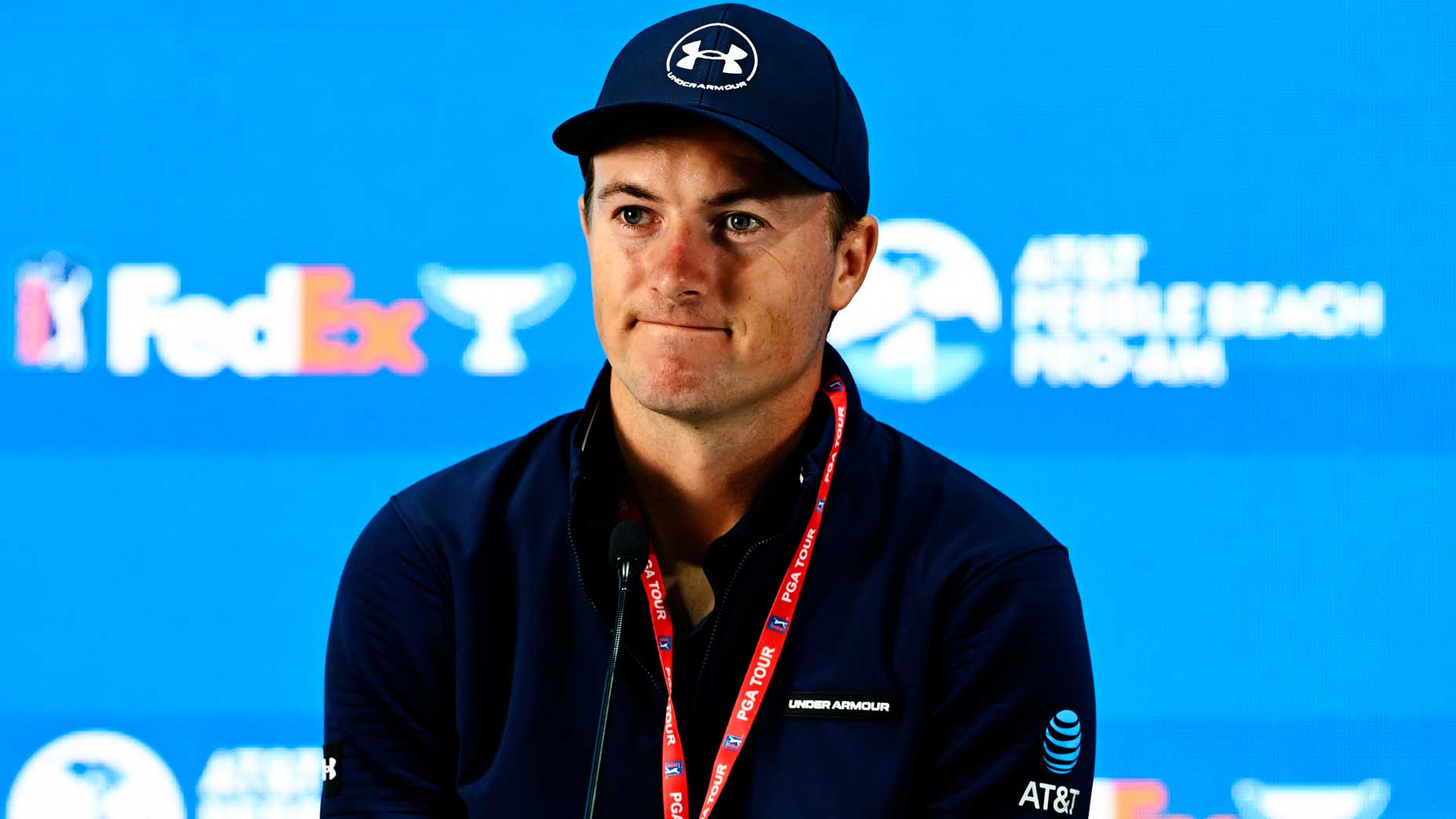On Tuesday, Rory McIlroy spoke to reporters ahead of this week’s Pebble Beach Pro-Am and admitted that, since his departure from the PGA Tour’s Policy Board last fall, he’s taken a step back from pro golf’s politics.
But that doesn’t mean he’s stopped thinking about it.
“I wouldn’t say I’m involved in the decision-making process at all, really,” he said. “I just hope they get it done.”
What he wanted to see “get done” in the short term, he said, was a deal between the PGA Tour and the Strategic Sports Group (SSG), a group of American investors headlined by professional sports owners like John Henry, Steve Cohen and Arthur Blank. He added that he thought the deal should have been done months ago, and that part of the reason he’d left the board was it’d felt like he was “banging his head against the wall.” As time has gone on, he’s also begun to call for a creative solution for the chasm between LIV and the PGA Tour, suggesting a world tour or an offseason version of LIV. In other words, he hoped the SSG deal was just the beginning.
“Obviously I’ve changed my tune on [this] because I see where golf is and I see that having a diminished PGA Tour and having a diminished LIV Tour or anything else is bad for both parties,” he said. “It would be much better being together, and moving forward together for the good of the game. That’s my opinion of it.
“So to me, the faster that we can all get back together and start to play and start to have the strongest fields possible, I think is great for golf.”
Wednesday morning brought news. The SSG deal had gone through, injecting $1.5 billion into a new for-profit Tour entity with the promise of another $1.5 billion down the road.
But where does that leave things with the PGA Tour’s framework agreement with the PIF — and is there any bridge to peace with LIV? After all, in the original vision for PGA Tour Enterprises, PIF governor Yasir Al-Rumayyan was sketched in as chairman. Under the SSG agreement, he isn’t yet involved.
On Wednesday afternoon Jordan Spieth spoke to reporters and spoke glowingly about the deal. Spieth is a central figure in the Tour’s politics these days; he replaced McIlroy this fall on the Policy Board. He praised the stability the deal would provide. He cited it as the “premier place to play professional golf.” The best part of the deal, he said, was the fact that the players are now part-owners. So how important is it, then, that the PIF is involved?
“I think it just depends,” Spieth said. As a Player Director he chooses his words carefully, well aware that his role is to represent the entire membership.
“At this point if the PIF were interested in coming in on terms that our members like and/or the economic terms aren’t beyond SSG’s and they feel it would be a good idea, I think that’s where the discussions will start.”
Spieth’s words seemed to make it clear: a deal with the PIF isn’t close. Coming to a consensus as a Tour would be the first step, he said. Then there would be the Department of Justice to deal with …
Spieth was also asked about McIlroy’s viewpoint that LIV pros should be able to return to the PGA Tour without punishment. Here, too, he chose his words carefully.
“I think that — I’ve asked a lot of players, I’ve done a lot of talking with a lot of players in the last couple months,” he said. “I saw that, too. That’s Rory’s viewpoint. I could name some guys with the same viewpoint, I could name some guys with a totally opposite viewpoint. So it’s certainly mixed on how players feel about that.”
It’s complicated; that much remains clear. For all the talk of a potential peace deal, this week the tours are once again going head to head. The PGA Tour’s event at Pebble Beach kicks off its new era of Signature Events, while LIV is launching its second full season — fresh off poaching several more players from the Tour’s ranks, including Jon Rahm, Tyrrell Hatton and Adrian Meronk. The PGA Tour’s acceptance of alternate outside investment gives it additional leverage, regaining whatever bargaining power it lost with Rahm’s departure. There’s still plenty of incentive for the PIF to work with the PGA Tour and the other way around, too. But Spieth has no need to say that publicly. And Kumbaya isn’t yet in the offing.
“I don’t think that it’s needed,” Spieth said of PIF’s investment. “The short answer is we don’t have to and I think the long answer is the positive there [would be] unification. But like I’ve mentioned earlier, we have members that feel strongly on both sides, so until that would be able to be solved and that would be No. 10 on the list of 10 things … it would be a situation that we should try to have, but I’m not sure if or how or when it would get done.”
On a conference call with players on Wednesday morning PGA Tour commissioner Jay Monahan confirmed that he had been to Saudi Arabia two weeks ago. He insisted that discussions with the PIF are ongoing. And he said the SSG was supportive of those negotiations. In other words, it’s possible McIlroy’s vision for the future could still come to pass.
It just doesn’t seem likely to happen quickly.
